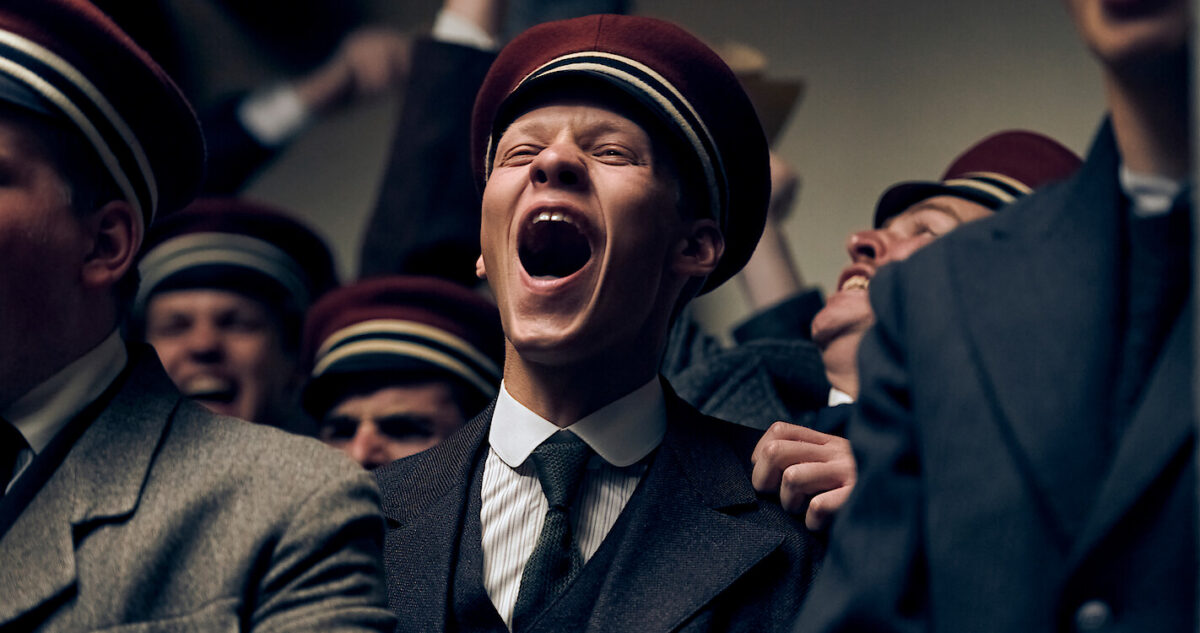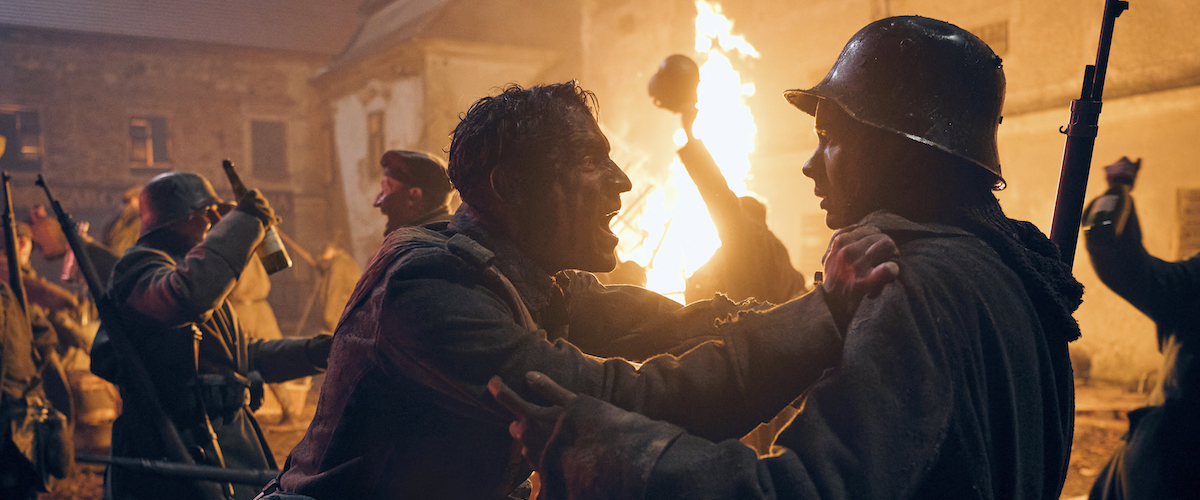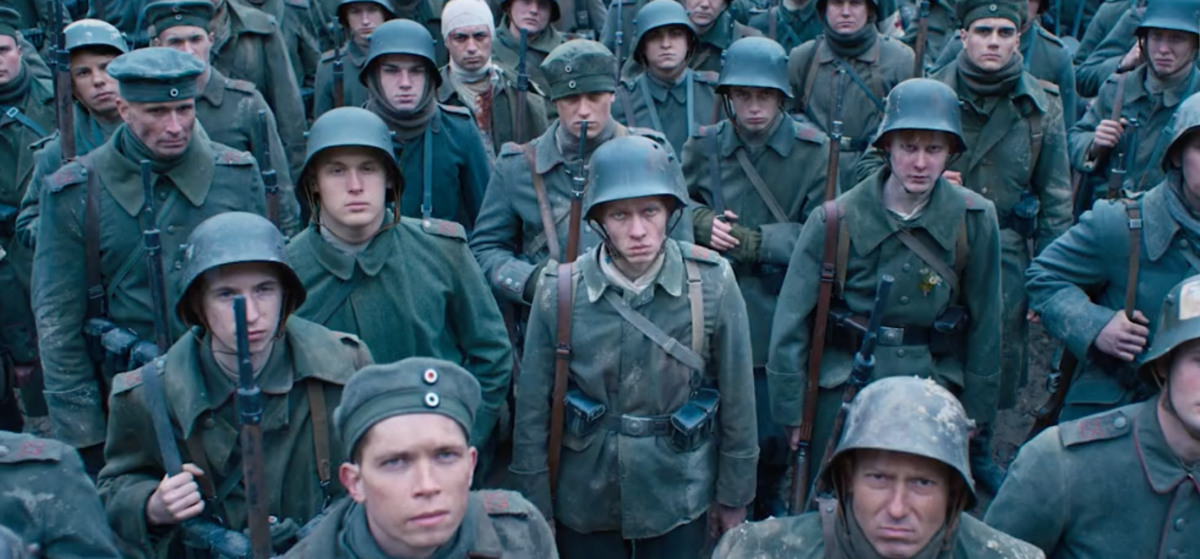This film is the remake of Lewis Milestone’s 1930 Oscar winning film, which is based on Erich Remarque’s book, about his experiences in the German trenches in the First World War and its aftermath.
The film is stunning and is rightly up for awards, with multiple nominations for the Baftas and Oscars. It has already won the Palme d’Or at Cannes.
When I have recommended it to young people, they have replied that they don’t like war films. A noble sentiment, but look around the world today and you will see war everywhere. This film should make you think about how war affects people, whatever you think about those wars. The lead actor in the 1930 film became a conscientious objector in the Second World War.
The film follows the story of a group of young recruits, urged on by their tutors to sign up. One forges his father’s permission and lies about his age. They push each other in a macho way and think they are headed for glory.

On the way to the front, they pass wounded soldiers; they have to give up their bus and help in a hospital. This starts the process of disillusionment. When they arrive in the trenches, it is like hell on earth, with bombs all around and the worst being sent over the top, a gory spectacle that is amazingly filmed.
In the background, the German politicians realise the war is lost. They argue for signing a peace/surrender agreement, but the military opposes this. However, the politicians prevail, and we see the scenes on the train where the agreement is signed. The German delegation tries to secure concessions, but the French will give nothing and demand they sign the agreement that concedes territory in Alsace to France.
Meanwhile, the fighting is going on, and one of the group is killed, causing consternation. They are being guided by a couple of older veterans and have thus far survived. We see the rest of them, temporarily away from the front. Rumours of peace are circulating.

When the date is set—the 11th hour of the 11th month of 1918—the soldiers celebrate, both in the French and German trenches. But the German officer in charge decides, at 10.45, to attack once more. The soldiers try to revolt against this but are forced back to the trenches. This final attack is the main bloody set-piece.

The French soldiers, naturally, reacted with extreme violence.
Meanwhile the officer discusses with his subordinate what he will do after the War, eating while the battle goes on.
Militaristic and nationalistic language is brilliantly displayed, alongside the physical, and mental suffering of the soldiers.
Think Syria, Ukraine, and Iraq.
The great war was a huge historical event, as you can see in every village in France, where the war memorials are covered with the names of the dead from the First World War. There were three times as many French dead as English, for example.
Although a film doesn’t end war, it can help raise anti-war consciousness. The book was burned by the Nazis for a purpose.
Think about what happened in Normandy during the Second World War, after D-Day, when more French people were killed by the allied bombing than by the German forces. Towns such as Caen, St. Lo, and Flers were flattened by that bombing and weren’t rebuilt until the late 1950s.
The weapons used then by the Americans, such as white phosphorus, were chemical weapons; this film takes you back to the trenches and the use of gas.
Many of the diaries of the allied soldiers are now at the Caen Museum. Even a “respectable” historian like Antony Beavor, in his D-Day book, details the killing of prisoners and the “turkey shoot” that took place outside Falaise in Normandy, a mass slaughter of German soldiers.
Available now are book tapes, “D-Day Through German Eyes,” by Holger Echertz, in which an embedded reporter goes back to soldiers he interviewed in Normandy, when Germany was in complete control, and subsequently interviews them about their D-Day experiences.
They describe the weapons used against them: the terror of flame-throwing armoured vehicles, soldiers fleeing phosphorus-burning trenches.
This film says there is never glory in war; it is the ordinary people that are being hit by these weapons! Of course, it does not follow up on the post-war German workers’ uprising and the murders of Liebknecht and Luxembourg, who opposed the war, that took place only months later.
All Quiet on the Western Front can be found on NETFLIX
Art Book Review Books Campism Capitalism China Climate Emergency Conservative Government Conservative Party COVID-19 Creeping Fascism Economics EcoSocialism Elections Europe Event Video Far-Right Fascism Film Film Review Fourth International France Gaza History Imperialism Israel Italy Keir Starmer Labour Party Long Read Marxism Marxist Theory Migrants Palestine pandemic Police Protest Russia Solidarity Statement Trade Unionism Trans*Mission Ukraine United States of America War

